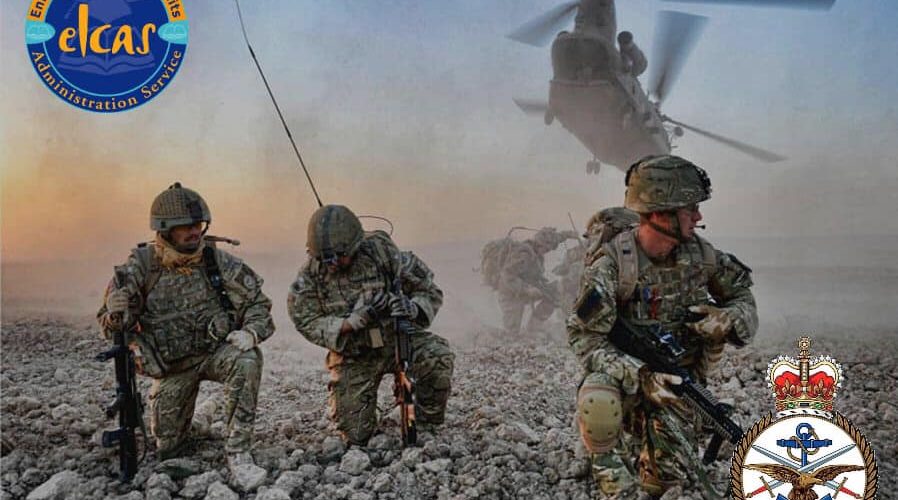
ELCAS Courses: A Comprehensive Guide for Military Transition with a Focus on Close Protection Roles
- Posted by Phoenix
Transitioning from military service to civilian life can be a challenging process. However, the skills and experiences gained during your time in the Armed Forces can open doors to a variety of rewarding careers. This article will explore some potential career paths for military leavers, focusing on those recognised by the Enhanced Learning Credits Administration Service (ELCAS), with a particular emphasis on the Phoenix Close Protection Course.
Understanding ELCAS
The Enhanced Learning Credits Administration Service (ELCAS) is a scheme run by the UK Ministry of Defence. It provides financial support for members of the Armed Forces to undertake further education or training. This scheme is designed to help service leavers transition into civilian life by providing them with the skills and qualifications they need to pursue a new career.
Exploring ELCAS Recognised Careers
When considering your career options post-military, it’s important to remember that the skills you’ve developed during your service are highly valued in the civilian workforce. Here are some potential ELCAS recognised careers that could be a good fit for military leavers:
1. Defence/National Security Contracting
Companies that contract with the government to provide national security services often value the discipline, strategic thinking, and leadership skills that military service develops. These roles can provide a seamless transition for those accustomed to working in defence and security.
2. Intelligence Roles
Roles in intelligence can range from analysis to field operations. These positions often value the kind of experience and training that military service provides, making it a natural transition for many service leavers.
3. Emergency Management and Public Safety
Planning for and responding to emergencies, including natural disasters and public health crises, requires the kind of logistics, operations, and crisis response skills developed in the military. This makes emergency management and public safety roles a good fit for many veterans.
4. Health Care
From emergency medical technicians (EMTs) to healthcare administrators, many roles in health care can benefit from the discipline, teamwork, and stress management skills developed in the military. For those with medical training during their service, this can be an excellent career path.
5. Government Roles
Many veterans find rewarding careers in federal, state, or local government. These roles can range from administrative positions to roles in law enforcement or public works, providing a wide range of opportunities for service leavers.
6. Information Technology
The military often provides advanced training in IT, making this a good potential career path for veterans. Roles can range from network administration to cybersecurity, offering a variety of opportunities in a rapidly growing field.
7. Financial Services
Roles in financial services, such as financial advisor or financial analyst, can benefit from the discipline and strategic thinking developed in the military. These roles often require a high level of trust and responsibility, traits that veterans are known for.
8. Manufacturing Technician
Working with machinery in a manufacturing setting is a skill that many service members may have gained during their military service. This can provide a solid foundation for a career as a manufacturing technician.
9. Information Security Analyst
Protecting an organisation’s computer systems and networks is a skill that aligns with many military roles. As cybersecurity becomes increasingly important, this can be a growing field with many opportunities.
10. Management Consultant
Helping organisations improve their performance is a role that can benefit from the leadership and strategic planning skills developed in the military. Veterans often have valuable insights that can help organisations operate more effectively.
Remember, the best career path for you will depend on your individual skills, experiences, and interests. Many veterans find that the skills they developed in the military, such as discipline, leadership, and the ability to work under pressure, are highly valued in a variety of fields. By exploring ELCAS recognised careers, you can find a rewarding career that makes the most of your unique skills and experiences.
Close Protection Careers: A Comprehensive Guide with a Focus on Phoenix Close Protection Course
In the world of private security, one career path stands out for its intensity, demand, and rewards: Close Protection. This field, often associated with bodyguards or executive protection professionals, involves ensuring the safety of individuals who may be exposed to elevated personal risk because of their employment, celebrity status, wealth, associations, or geographical location. This article will delve into the exciting world of close protection careers, with a particular focus on the Phoenix Close Protection Course.
Understanding Close Protection
Close protection officers (CPOs) are tasked with the responsibility of keeping their clients safe from all forms of threats. This can involve advance planning and preparation, threat assessment, travel route analysis, search procedures, and physical protection measures. The role requires a high level of situational awareness, excellent judgement, and often, physical fitness.
Close Protection Careers
Close protection careers can be incredibly varied, with opportunities in private security firms, corporations, entertainment and sports industries, and even within government agencies. The role can involve domestic and international travel, and each assignment can present unique challenges and demands.
Skills Required in Close Protection
Close protection officers need a wide range of skills. These include excellent communication and interpersonal skills, the ability to remain calm under pressure, decision-making and problem-solving skills, a high level of physical fitness, and a good understanding of security and risk management principles. Training in first aid, defensive driving, and conflict management can also be beneficial.
Phoenix Close Protection Course
For those considering a career in close protection, the Phoenix Close Protection Course comes highly recommended. This comprehensive training programme is designed to equip individuals with the skills and knowledge necessary to excel in the field of close protection.
Why Choose the Phoenix Close Protection Course?
Phoenix offers the world’s most comprehensive close protection course, designed with an emphasis on realism and professionalism. The course is tailored to meet the specific needs of clients, providing them with the skills and knowledge necessary to excel in the field of close protection.
Phoenix’s course is a 21-day intensive training programme that covers both practical and theoretical aspects of close protection. The course includes realistic live operations, theory-based classes, and is designed to acclimatise you to the fast-paced reality of life as a close protection officer.
Upon completion of the course, you will receive 11 globally recognised qualifications, including an SIA Approved Level 3 Certificate for Working as a Close Protection Operative within the Private Security Industry. Other qualifications include advanced driving, unarmed combat, advanced covert surveillance, and first aid response, among others.
Phoenix is a World-leading operational close protection company with an unparalleled portfolio of global clients. Graduates of the Phoenix Close Protection Course have increased credibility and employment prospects within the close protection industry. Phoenix also offers employment opportunities to its trained delegates, providing a direct pathway to a successful career in close protection.
Phoenix is honoured to accept Enhanced Learning Credits from former and serving members of the armed forces. Their Level 3 Working as a Close Protection Operative Course is approved by the ELCAS scheme, making it an excellent choice for service leavers looking to transition into a new career.
In conclusion, whether you’re looking to transition into a new career or enhance your existing skills, ELCAS recognised courses offer a wealth of opportunities. So why not consider the Phoenix Close Protection Course and take the first step towards a rewarding and successful career in close protection?








